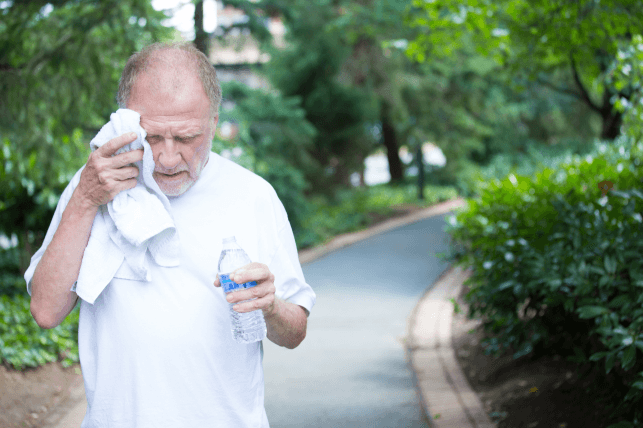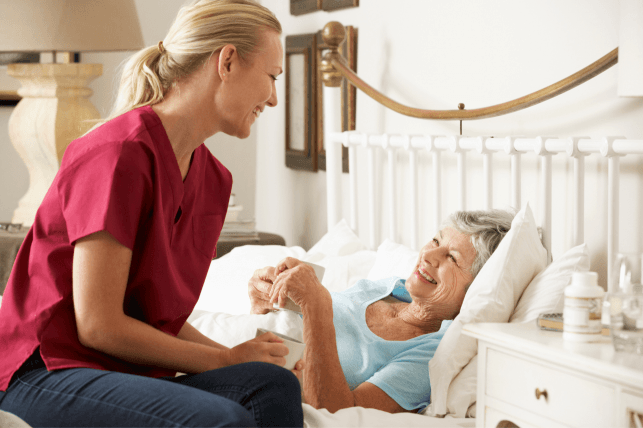
Keeping Our Bay Area Seniors Safe from Extreme Heat
Dee Bustos
Caregiving Tips
Jul 08, 2021
9 min read
The record temperatures and uncomfortable heat affect all of us. Seniors, however, are particularly vulnerable.
As a professional or primary caregiver, it’s important to prepare now so when the temperature spikes, your client remains safe and comfortable. Care Indeed has service options to support you as a caregiver.
Who Is Most at Risk from Severe Heat?
Seniors, especially anyone with chronic health problems, are at the most risk when temperatures soar. Not being acclimated to hot weather can further heighten risks.
Overexertion, obesity, alcohol use, and certain drugs like Parkinson’s Disease medication can trigger reactions to excessive temperatures. Body temperatures can escalate quickly and require action on the caregiver’s part to protect the senior under your care from an illness or even death.
The dangers of heat for seniors start to increase when the thermometer hits 80. Here in the Bay Area, we are expecting some days of substantially higher temperatures. Follow these tips to keep your aging loved ones safe.
How to Keep Seniors Safe When Temperatures Climb
● Plan ahead. If you know high temperatures are forecast, help them prepare in advance.
● Keep clothing unrestrictive and light. Clients will feel cooler in light clothes that are loose-fitting instead of constricting. A wide-brimmed hat is essential for going outdoors. Cotton is more breathable than synthetic fabrics. Bedding should also be made up of light, breathable fabric.
● Hydration. Observe carefully to ensure your client or loved one is drinking enough to stay fully hydrated. This can be tricky. One solution is to have beverages or bottles of water for the day ready so the senior does not forget to drink. Beverages should be non-alcoholic and caffeine-free.
● Keep plenty of water on hand. Have a supply of water available so they will not need to venture out on triple-digit heat days.
● Encourage seniors to eat light meals. Keep the oven off during hot weather.
● Air-Conditioning. If your client or loved one has air conditioning, now is the time to use it. If they do not have air conditioning and the heat is oppressive, consider a trip to the library, movie theater, local mall, or other air-conditioned area, assuming the individual has been vaccinated for COVID-19.
● Run fans. Another option to cool the inside of a home is to draw the shades when the sun is shining through the window and run fans to keep air circulating. When temperatures become too high, this may not be adequate to cool the home of an older adult.
● Apply sunscreen daily. Sunburn can be dangerous and painful in the aging.
● Encourage your loved one or client to stay inside during the hottest part of the day. This is generally between 11 a.m. and 4 p.m. When outdoors, seek shady areas and places that catch a breeze.
● Help individuals cool off by placing a cold washcloth on the forehead, neck, and even the arms.
● Do not leave your loved one or client alone for extended periods. Develop a system with family members and friends to frequently check on them if the caregiver is not present.
What Can Happen When Seniors Are Exposed to Excessive Temperatures?
The heat affects everyone, but our seniors are particularly vulnerable. Dementia sufferers and anyone with a cognitive impairment may have difficulty processing just how hot it is. It may also be challenging for them to communicate how uncomfortable they are.
As we age, our skin naturally becomes thinner. This causes seniors to be more vulnerable to heat and the sun. Sweating and body temperature regulation may be difficult. Overdressing in extreme heat is not uncommon for seniors because of this inability to gauge the true temperature.
Seniors with medical conditions are even more vulnerable to heat-related reactions and illness. Certain medications can have a huge impact on how a senior’s body reacts to heat, so caregivers must be aware of the side effects of the medications the senior takes.
Danger Signs of Heat Illness in Seniors
If a senior complains of headaches, nausea, dizziness, is fatigued, has muscle cramps, or a weak pulse, suspect heat stress and heat cramps. Signs that the individual’s condition is becoming even more serious include reduced urination, profuse sweating, and vomiting.
Immediate medical attention is necessary if you suspect heat stroke. This can be deadly. Symptoms include hot skin, confusion, breathing rapidly, a temperature over 100°F, seizures, convulsions, or a complete loss of consciousness.
As familial and professional caregivers, we want to avoid seniors experiencing potentially deadly heat stroke or heat exhaustion. Proactive care and making sure family or friends check in on older adults whenever the caregiver is not present will help keep excessive heat complications to a minimum.
Let’s Protect Our Seniors from Extreme Heat
Our Bay Area senior population is at great risk when the temperatures are excessive. As a the primary caretaker, you must plan ahead so seniors under your care are protected from the heat.
More than 600 Americans die each year from heat-related causes, and the majority of them are seniors. This year is shaping up to be one of the hottest on record, so preparing for the heat is something every caregiver and family member of seniors must do now.
Whether you are a caregiver or caring for a loved one, you don’t have to do it all yourself. Care Indeed offers a number of services such as meal delivery, errands, and Care Bundles to support seniors in San Francisco and throughout the Bay Area. Find out more at CareIndeed.com or call (650) 352-4007.
The Benefits of Home Care Services in San Francisco

Worried About Your Joints? Try These 3 Preventative Tricks




